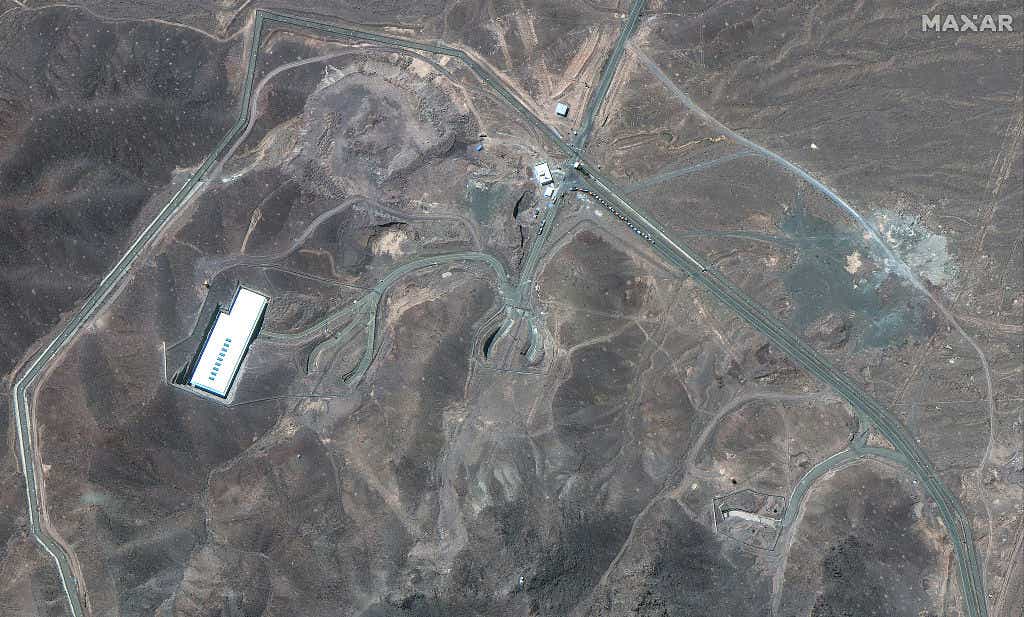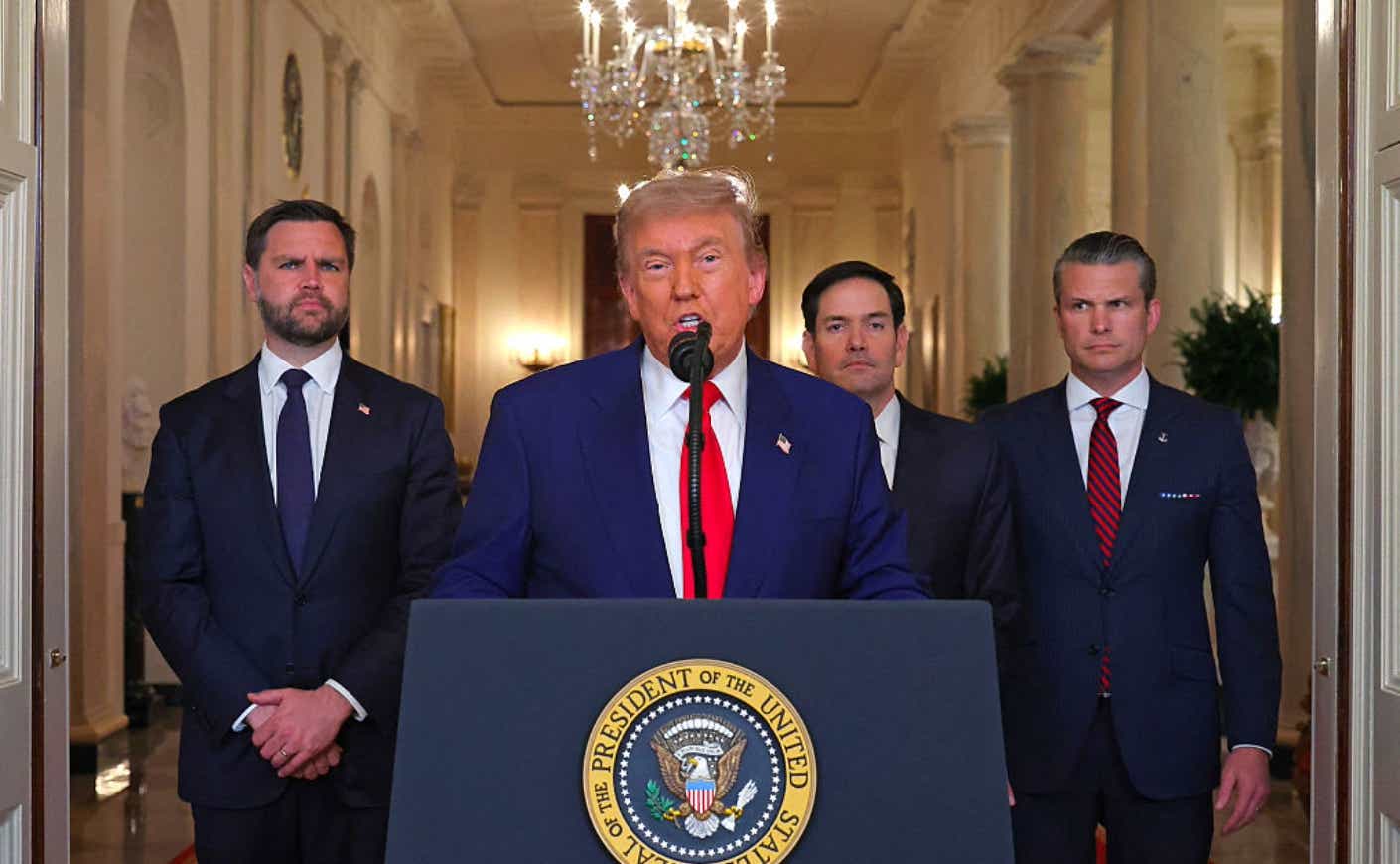The U.S. has launched a strike unlike anything we’ve seen in decades — and the world is on edge.
The operation unfolded over the weekend, when a fleet of American B-2 bombers flew thousands of miles to hit three nuclear sites deep inside Iran in what officials are calling the largest B-2 operational strike in U.S. history. President Trump claimed the facilities were “completely and totally obliterated.”
The mission, carried out without detection, was so tightly guarded that some senior Democrats on the Senate and House intelligence committees — including Sen. Mark Warner of Virginia — weren’t briefed ahead of time, even as a few of their Republican counterparts were, according to reports.
The strike has stunned global observers and sparked a wave of condemnation and concern. In Tehran, officials are vowing revenge, while tensions continue to climb across the Middle East. In Washington, military leaders say they’re bracing for any form of retaliation — cyber or otherwise — in the days ahead.
Here’s what we know about the attack, and how world leaders are responding.
What do we know about the strikes on Iran?
Over the weekend, the Pentagon launched what it called the “largest B-2 operational strike in U.S. history” against Iran. In a press conference on Sunday, Chief of the Joint Staff Gen. Dan Caine and Defense Secretary Pete Hegseth detailed the attack, dubbed “Operation Midnight Hammer.”
Although the bombings themselves lasted just 25 minutes, the mission began much earlier, at around midnight on Saturday. A strike team of seven B-2 bombers took off from Whiteman Air Force Base, just outside Kansas City, and flew 18 hours to reach their first target: the Fordow nuclear facility in Iran. There, they dropped two GBU-57 “bunker buster” bombs, which were created to hit any potential underground targets.
The remaining 14 bombs were dropped on two other nuclear sites, Natanz and Isfahan. All three targets were struck in rapid succession between 6:40 and 7:05 p.m. ET, causing what Caine described as “severe damage.” Despite the intensity of the strikes, no fatalities have been reported, though 11 people on the ground were injured.

And perhaps the most shocking part? U.S. troops pulled off the entire mission without being detected. According to the Pentagon, it doesn’t appear a single shot was fired at them — either on the way in or out. That’s largely thanks to a series of tactics designed to throw Iran off. While the B-2s made their way toward the target, other aircraft flew from Missouri over the Pacific, serving as a distraction.
“Iran’s fighters did not fly, and it appears that Iran’s surface-to-air missile systems did not see us throughout the mission. We retained the element of surprise,” Hegseth told reporters.
But the military action may not end there. In a historic address from the White House on Saturday night, Trump warned that the U.S. still has “many targets left in Iran” — and vowed the military would “take them out within minutes” if Iran doesn’t back down or agree to peace talks soon. He then doubled down in a post on Truth Social, urging Iran not to retaliate. In the meantime, the U.S. military is staying on high alert, prepared to respond to any potential strikes.
Is Iran going to attack the U.S.?
Despite Trump’s warnings, Iran has already threatened to respond. At a news conference in Istanbul on Sunday, Iranian Foreign Minister Abbas Araghchi condemned the U.S. operation, calling it an “outrageous, grave, and unprecedented violation” of the U.N. Charter and international law. He warned of “everlasting consequences” and called for an emergency meeting of the U.N. Security Council, adding that Iran now “reserves all options to defend its security.”
One major concern is that Iran could retaliate by shutting down the Strait of Hormuz — the narrow waterway between Iran and Oman that’s critical to the global oil trade. About 20 percent of the world’s petroleum liquids passed through the strait last year, according to the U.S. Energy Information Administration. Although Iran’s Parliament has already approved a measure to close it, the final decision reportedly lies with the Supreme National Security Council.
Meanwhile, the Islamic Revolutionary Guard Corps vowed to strike back — and followed through. A day after the attacks, Iran launched a missile barrage into Israel, causing damage and injuries in Tel Aviv. The Houthis, a rebel group backed by Iran in Yemen, also announced they would join in the retaliation.
Whether there will be any attacks on American soil remains a major question. On Sunday, the National Terrorism Advisory System issued a bulletin warning of a “heightened threat environment in the United States” following the strikes on Iran’s nuclear sites. So far, most of the threats appear to be online. Officials say low-level cyberattacks by pro-Iranian hacktivists are likely, and government-linked cyber actors in Iran may also target U.S. networks.
How are world leaders responding to the U.S.'s strikes in Iran?
The U.S. strikes triggered a wave of global reactions.
In Europe, responses were largely measured, with most governments urging caution. In the United Kingdom, Prime Minister Keir Starmer affirmed that “Iran can never be allowed to develop a nuclear weapon,” while also calling for a return to diplomacy. France’s foreign minister, Jean-Noël Barrot, said on social media that his country learned of the strikes “with concern,” emphasizing that France had no involvement. German Chancellor Friedrich Merz went a step further, urging Iran to “immediately begin negotiations” with both Israel and the United States.
Across the Middle East, reactions ranged from alarm to outright condemnation. Qatar warned that the strikes could further destabilize an already volatile region, while Saudi Arabia described them as a “violation” of Iranian sovereignty. The harshest criticism came from Iran’s allies: Yemen’s Houthi movement denounced the operation as a “cowardly” U.S. attack carried out in support of “the Zionist entity.”
Russia also weighed in, “strongly condemning” the U.S. bombings and calling them a “gross violation of international law.”
At the United Nations, Secretary-General António Guterres issued a stark warning, saying he was “gravely alarmed” by the strikes. “This is a dangerous escalation in a region already on the edge,” he said in part on X.
Taken together, the global reaction underscores just how high the stakes are — not only for the Middle East, but for the entire world.









